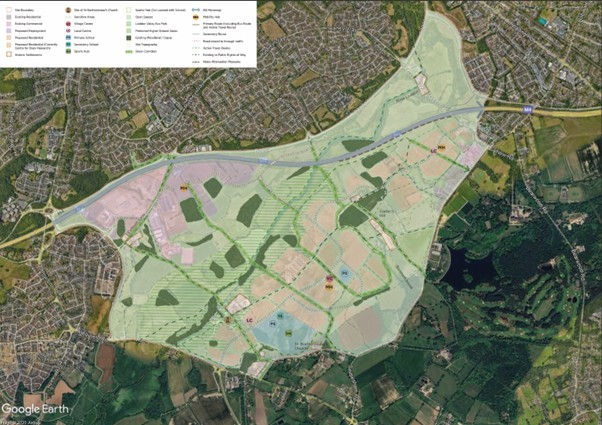If it aint broke, don’t fix it?
- paulstevens24

- Jan 9, 2022
- 4 min read
Updated: Jan 10, 2022
Today I managed a walk along parts of the Loddon at Hall Farm. It was muddy, messy, overgrown and choked in places with lots of fallen trees. Not ideal for people, but, I suspect absolutely perfect for wildlife.

On the way to find the Loddon, I had parked in a lay-by next to the busy Reading Road. The litter was, frankly appalling. When nature does messy it is beautiful, but when people do messy, it is ugly in the extreme.

But this post is about more than just aesthetics. This is about how we care for and protect our environment. Starting with a piece I saw in the local paper:
Tom Oliver, professor of Applied Ecology at University of Reading, focuses his research on loss of biodiversity. In the Reading Chronicle article he says :”There are worries that biodiversity, trees and green space would all be lost if the ‘garden village’ goes ahead as the area it will be located on is currently made up of fields”.

Then a piece from one of the National papers on environmentally friendly New Year resolutions:
“Firstly, pledge to undertake workplace activism. This doesn’t have to mean going on strike and it doesn’t have to be negative – in fact, it can be a positive for companies interested in enhancing their reputations”. (Take note University of Reading, below is a shot of a small part of your workplace!)

“Secondly, act age-appropriate. Be an elder, or a responsible parent, in the only way it is possible to be now – by joining with others to change the future, as well as taking care of your own kids or grandkids”. (You really can make a difference, but we need to work together. That means agreeing our strategies. More on this later.)

“Thirdly, help to build real communities. Being less reliant on carbon means being more locally based. Resilient communities need to adapt to the climate crisis and still be able to function. That means communities growing food locally, producing their own energy and caring for one another in ways that don’t often happen now”. (Take note Wokingham Borough Council with your carbon net zero aspirations! Visible in the background of the shot below is "Shinfield Meadows". Yet another euphemistically named housing estate that currently marks the outer edge of the urban sprawl that Wokingham wants to enlarge ever outwards.)

Next, a link gleaned from listening to Radio 4 this morning about Kentish Town City Farm:
UK’s 1st City Farm, founded in 1972, is a charity based in the London Borough of Camden offering lifelong learning, outdoor therapy, education to children, adults with special needs and anyone needing respite from the strains of urban life.
“We have a rich history, kickstarted by Ed Berman who mobilised a community to improve its neighbourhood and create imaginative spaces for children to play and explore. Inter-Action steered by Ed, found farm buildings and stables and had a radical idea, to create a “City Farm”. This was the start of not only our own incredible history but of the whole City Farm movement. Today, Kentish Town City Farm is a hub, a place where everyone can get their hands dirty, care for real life animals, share their skills or learn new ones. Others come for the tranquillity, a haven for wildlife and sanctuary from the busy city”.

Which ties in with an email received to the affordableandsustainable@google.com inbox this week, thank you Jacqui :-)
“This isn't a SMART target but one thing I thought about for how UoR might be able to make revenue from the site without selling could be to use it for educational purposes. An education centre which schools can visit? Outdoor classroom? Sensory area for autistic children which LAs and schools can buy into? Minimal changes to the environment”.

Recently in Arborfield we have had arson at the park where bored kids tried to set fire to the youth shelter. We have had vandalism with a notice board smashed at the pavilion and eggs thrown at the windows of the village hall. The extent to which (some) people are willing to (polite version) despoil their own environment is shocking. How can we teach people to respect and care for nature?

I think the key word here is teach, but without access to the countryside how do people learn to care for and respect it?
The plans for the "Loddon Valley Garden Village" include a lot of SANG. (Development jargon meaning Special Areas of Natural Greenery). But my concern is that these SANG will tidy up the wilderness and turn this wonderfully diverse habitat into an extended garden for the proposed new homeowners. A "borrowed landscape" to provide an attractive backdrop to the houses in order to push up the price that can be charged.

This land is uniquely special, and it provides many varied opportunities for the University of Reading to show they not only care about education, they also care about the environment. To return to the article published in the Reading Chronicle: "A spokesperson for the university said: Environmental sustainability is a core principle of the University of Reading strategy and is of fundamental value to our community. We are also one of the ‘greenest’ universities in the country, with ambitious and award-winning plans to make all our operations net zero by 2030. We agree with those who are seeking to highlight the importance of sustainable development that fits in with society’s need to become carbon net zero. We also recognise the need to improve habitats and species biodiversity, prevent pollution of soil, air and water, and reduce greenhouse gas emissions”.
All in safe hands then?





Comments